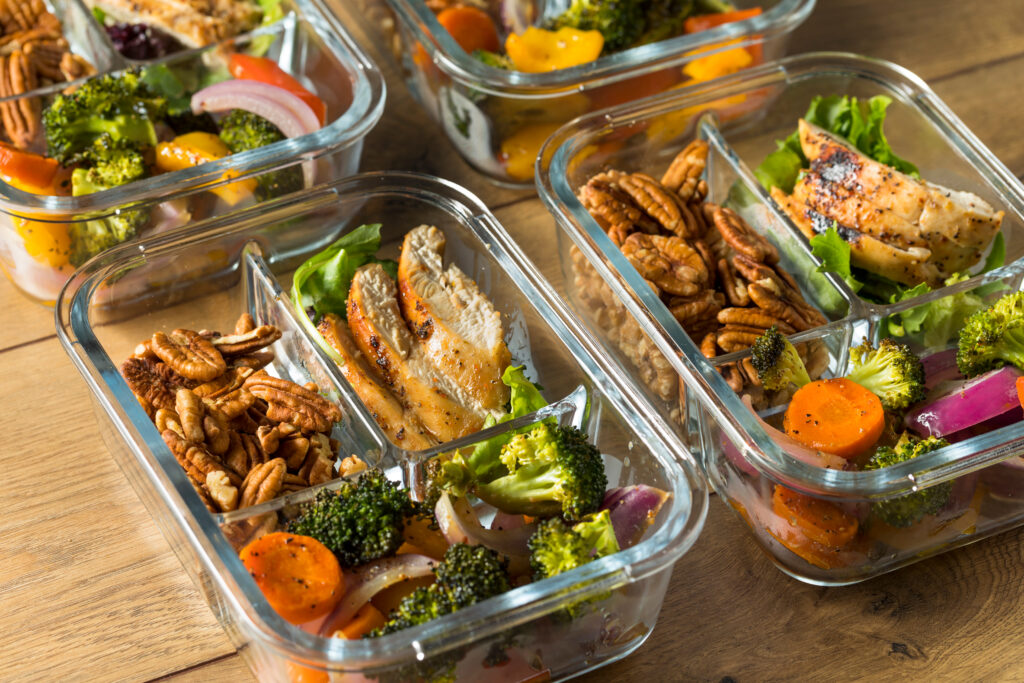Australia is suffering from an overweight and obesity crisis. In 2022, 67.9% of the population had measured waist circumference that put them at an increased risk of disease. Moreover, 65.8% of adults were classified overweight or obese via Body Mass Index (BMI)¹. These measurements indicate an individual is carrying larger amounts of adipose tissue than what is healthy. Adipose tissue is not the enemy. For instance, it is a metabolically active organ which, along with the liver and skeletal muscle, helps maintain proper blood sugar levels. Excess adiposity, however, is a major risk factor in several diseases including type 2 diabetes, cardiovascular disease, hepatic steatosis and many types of cancers². To lose excess weight, we must consume less energy than what we use³. As such, today we’d like to discuss some simple strategies that you can apply which will help you lose weight, not your sanity.
Get informed
Knowledge is power. You don’t need to understand how the Mitochondria converts glucose into Adenosine Triphosphate (energy), but you should know something. Firstly, learn how to read nutrition labels. Look out for energy, fibre, protein, carbohydrate and fat content per serving size and 100g. These values are useful when planning meals. Additionally, at a glance these values can help you make more appropriate decisions when shopping. Secondly, have an approximate idea of your energy needs. There are plenty of energy calculators available online and we have linked one here. To reiterate, losing weight requires consuming less energy than what you expend. Third and last, know your nutrition essentials. Meeting requirements such as fruit and vegetable intake will mean you’ll likely reach your fibre and micronutrient goals incidentally.
Plan Ahead
You’ve heard the saying “fail to plan and plan to fail”? Simple forethought can go a long way. We suggest individuals plan their meals ahead of time, have “back-up” options and lastly, purchase groceries online. Firstly, major meals. This might look like one of two things: “meal-prep” where you allocate time to prepare a batch of meals you can refrigerate or freeze, ready to heat up during the week. It may also involve spending some time planning which meals you’ll cook, taking into account the possibility of leftovers for another day. “Back-Up” options include really easy ready-made meals, things like frozen veggies and microwaveable packets of rice, and understanding which takeaway options best align with your goals. Third and last, a great way to avoid impulse buying, extra spending and possibly snacking, is to shop online ahead of time and do a click-and-collect grocery haul.
Know your limits
Motivation is crucial but can wane, and relying solely on discipline isn’t practical. Decision-making is shaped by both conscious and unconscious factors, including social and environmental cues. For example, at a social event with canapes, you might feel pressured to eat or drink even if you’re not hungry, due to the social environment. Similarly, if you regularly drive past a tempting takeout restaurant after a long day, the familiar smell and convenient location make it hard to resist. These scenarios illustrate that decisions aren’t driven solely by discipline or motivation; they’re influenced by various factors. Instead of seeking a “one weird trick,” focus on understanding your limits and making small adjustments. For instance, changing your driving route can reduce temptation. By being aware of these influences and making thoughtful changes, you can improve your health and decision-making in meaningful ways.
Don’t lose your sanity spinning your wheels
Tackling overweight and obesity requires a multi-faceted approach. Educate yourself about nutrition, plan meals ahead, and understand your limits. Knowledge about food labels and energy needs helps you make informed decisions. Meal planning, including having convenient options and using online shopping, supports consistency. Recognizing and managing environmental and social influences aids in maintaining discipline. By integrating these strategies, you can effectively manage your weight and enhance your overall health. Small, intentional changes in your routine can lead to significant improvements in well-being. You can start making changes immediately, but weight loss is a gradual process, driven by informed choices and consistent habits. At Hobart Strength Training we can help you stay motivated, plan wisely, and adjust as needed to achieve lasting results. Contact us here today.

